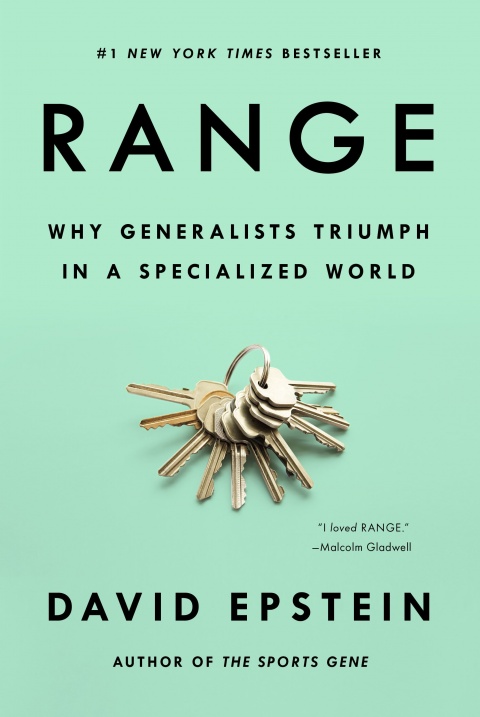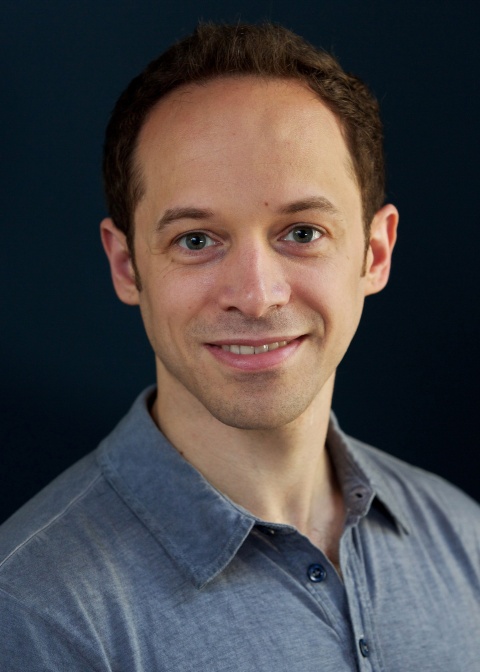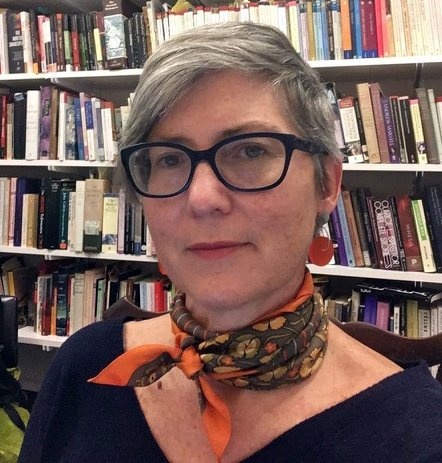Columbia College | Columbia University in the City of New York
“Range” and Higher Education
Columbia College Today recently had a call with writer David Epstein ’02, JRN’04, GSAS’04 and Julie Crawford, the Mark Van Doren Professor of the Humanities and former chair of Lit Hum, to talk about Epstein’s latest book, Range: Why Generalists Triumph in a Specialized World.

It’s not surprising that Epstein, formerly a senior writer at Sports Illustrated and author of the 2013 bestseller The Sports Gene: Inside the Science of Extraordinary Athletic Performance, introduces a primary analogy for specialization versus generalization by citing two of the greats: Tiger Woods, who first picked up a golf club at 7 months old, and Roger Federer, who dabbled as an athlete for years before settling into tennis superstardom.
Epstein makes a solid case for being a “Roger”; his former professor Crawford was eager to discuss the debate as it applies to higher education, as well as Epstein’s findings on fast versus slow learning. What follows is an edited excerpt of their conversation.
Columbia College Today: David, you specifically asked for Julie to be part of this conversation. Can you describe the influence she had on you?
David Epstein: [Laughs] I feel nervous, like I’m reverting back to my freshman self in front of my professor! I think I came to Columbia with something of an anti-intellectual streak. I was oriented toward achievement and going to a good school, but I don’t know if I was actually oriented toward learning. I think I was also intimidated — I didn’t realize that so many of my classmates would be coming from private schools, and reading on a higher level. I wasn’t attuned to reading deeper than what was exactly on the page.

David Epstein ’02
Photo by Deb Lindsey
Now I’m far on the opposite side of the spectrum — I read voraciously and am always aware of symbols and analogies. Julie cued me to the fact that I was getting in my own way, and I came around to seeing literary texts as the preservations and challenges of culture. Now I think of books as a sort of a privileged garden that people can dive into for a while. These questions I take on in The Sports Gene and Range — nature versus nurture, how specialized or how broad to be — I can’t answer those questions, but I can hope to make those conversations more productive and interesting, where someone can step away from whatever they’re doing and consider them.
Julie Crawford: I thought about higher education the whole time I was reading David’s book. What he was just saying about coming into Columbia with a sense of the elite education and the importance of the education but not necessarily the practices of the education — what other system allows you to see and experience education as a web of social good? What is it that creates knowledge in a larger sense, where it isn’t just end-oriented or a model of mastering things in the present? It’s something you wish you could tell every student in the moment: You’re not going to figure it out in the next year, or in the next four years.
CCT: Julie, do you sense from students that their education is only a means to an end?

Professor Julie Crawford
Epstein: Julie hits on one of the themes of the book, which is that sometimes the things you do to cause what looks like optimal outcomes in the short term undermine long-term development. It’s deeply counterintuitive. People with more career-oriented education do jump out to an income lead early on, but they become not very adaptable — and in a knowledge economy, while work changes a lot, they spend a lot less time overall in the work force. So they might win in the short term and lose in the long run. I think that process connects directly to education. We ask people to make choices at the time of fastest personality change in their life, to make choices for a person they don’t yet know.
CCT: David, you wrote: “We have a collective complex about sampling, zigzagging and swerving from ironclad long-term plans.” Where do you think this comes from? Do you think social media has had an effect?
Epstein: I think it has sort of waxed and waned throughout history. Specialization made a lot of sense for most people in industrial economies, where work this year looked like work last year and you might be able to expect that for your entire life. We see some of what happens when people are used to that sort of environment, where you have one discrete training period early in your career and you never have to relearn anything or reinvent yourself— those people are not so adaptable and aren’t prepared if there’s dislocation. Now we’re in an era where you have to keep learning — it’s a big shift; the world we live in has changed a lot faster. And the pressure ramps up because of the expense of education. I can only speculate the effect that social media has, but I think it infuses everything with more intensity.
CCT: It’s another element of pressure.
Epstein: Absolutely, plus it’s highly curated and unreal. It’s like the Olympics — people are only looking to see the best in the world. Most people aren’t on social media looking for the norm. It’s an unending ability to feel behind.
Crawford: One thing I paid close attention to in Range was pop-up knowledge, like a BuzzFeeded version of a research study that says you shouldn’t major in X, and then it gets circulated and becomes a wise-sounding info nugget. That kind of information retrieval, recirculation and use is the opposite of the slow practice — the dilatory, accidental and error-prone processes that you talk about in your book and that most professional educators believe education is about. I always call reading in Lit Hum “a slow practice in a fast world.” It’s the practice part that’s harder, the idea of something you have to do without immediate rewards. We all love dynamic immediate things that seem to work right away, but it’s much harder to do the other kind of thing.
We’re oriented toward measuring our own learning
by how fluid it feels and how quick the progress is,
which in many cases is the opposite of what we really want.
CCT: Do you think the Core and liberal arts in general are helping people open their minds to other paths and other points of view?
Epstein: The Core certainly did that for me. I’m still processing information I got from the Core. In my book I quoted from a text I read in “Major Texts of the Middle East and India,” which I took because of Lit Hum. I still have my books from Music Hum. The Core gave me the framework to get a foothold in understanding. The biggest gift for me in writing this book was the writing I got to do about art and music; it’s very much a continuation of the journey that the Core started me on. I’m not going to be a specialist in any one of these areas, but I can build these frameworks to continue my self-education.
Crawford: The book is a vindication against the argument that what the Core does is give cocktail party conversation. It’s not just about name-dropping; it’s more about analogical thinking but also the slow reveal, the surprise juxtaposition, or the return.
But David’s right; when you’re 19 in CC, you’re a radically different person than you are even when you graduate. I would love to hear whether there is data on students who are made to take a variety of classes, and if there’s a greater shift in those students in what they think they want to major in and what they end up taking. My hunch is that must be true.
Epstein: That happened to me! I ended up in a career that I’d had no idea about. But it is true; students who sample more do end up more often majoring in things they hadn’t heard of when they were in high school.
Crawford: Another thing I love about the Core is that faculty are teaching radically outside their expertise. The first time I taught Lit Hum, I’d read maybe three books on the syllabus. And so what’s great is, you’re learning along with the students; you’re not coming in with pre-conceived expertise. You have specialists in other areas teaching Lit Hum and you get that cross-pollination — you become aware in real time of the multiple different kinds of learning that can happen in this collective enterprise, where nobody is coming in as an expert in everything.
CCT: This is a perfect segue into fast learning versus slow learning — that was a fascinating chapter. David writes: “It’s difficult to accept that the best learning road is slow.” Can you both elaborate on that? Is that a sticking point for students?
Epstein: One realization is that most students are not very good at evaluating their own learning in the moment. It’s an important thing to be aware of, because it’s really difficult to combat. One of the quotations from a cognitive psychologist sticks in my head: “Difficulty isn’t a sign that you’re not learning, but ease is.” We’re oriented toward measuring our own learning by how fluid it feels and how quick the progress is, which in many cases is the opposite of what we really want.
Crawford: What you remind me of, as I enter my 20th year of teaching, is that the actual outcomes happen years after you’re out of the classroom. When students tell me something like, “That was a beautiful lecture,” I think, “Hmmmmm. That’s not what I was going for.” Because it’s not supposed to be beautiful, or quite literally consumable, because if it’s consumable it’s easily assimilable to what you already know. What you really want, as David says, is struggle, is that difficulty. But if students feel like they’re confused, it’s difficult for them to realize it’s great, because it messes with their heads.
CCT: How do you think the potential advantages of generalization can be imparted to performance-oriented young people?
Epstein: I think the best thing I can do is write a book about it and hope a lot of people read it [laughs]. I’ve been getting invited a lot of places to talk about it. People are looking for analogies and other ways to think, so I hope some of the book’s message will resonate.
Crawford: One thing the internet does is afford access. My 14-year-old son is very interested in reading about what people did before they became the thing that is awesome now. It’s not so much about narrativizing the rise of the great person, but rather narrativizing the indirection of the path, the great variety of the path. I find that when you talk to students all the time, and tell them to do something crazy or different [from the path they’re on], you’re also speaking to powerful winds on the other side, like parents or student loans. Sometimes I think it’s just the crosscurrent of conversation that needs to happen.
So David, if you’re coming to give that talk, you’re also part of that crosscurrent — because people have read about Federer and Tiger Woods, but in your interactions with people, you’re also talking about subjects and people that are more available to them and their own experience. It’s those cross-fertilizations that need to happen, talking to people outside your silo.
CCT: There’s a feeling of relief to hear stories about these exceptional others — to realize there are many ways to get there.
Crawford: On that note, David, another thing I really loved about your book is how you stress the collaborative nature of becoming a person. One of the things I feel the Core is so successful at, specifically because of the mechanics of the 22-person class, is reminding people that this is not a journey you’re doing on your own. It’s a really important observation to keep making, that many things are collaborative. I feel like that’s a real subtext in your book. Even though you may focus on recognizable names and really wonderful stories, I’m really interested in looking at the collaborators, the cultures, the co-makers and the no-named interlocutors who create the kinds of knowledges and successful enterprises that you talk about. That’s something to remind young people, that we’re doing all of this with each other.
CCT: David, how does it feel to have another bestseller?
Epstein: As I get older I take myself less seriously. I’ve realized the importance of luck. But it’s amazing to see a lot of people engage with your work. And even the critiques were totally fair, and something for me to learn from — I don’t know if that’s me maturing or the issues were less controversial than in my first book, but that’s the best thing you can ask for.
Crawford: David, by writing this book you’ve actually illustrated your thesis. You’ve had all these experiences and did all this diligent research across realms, and what you’re telling us is: This is something we need to be thinking about. You should take credit for the fact that it’s coming at a time when people need that insight.
CCT: Really badly, actually [laughs]. It’s such a strong, positive message.
Crawford: Free research of ideas by free thinkers isn’t always going to be end-oriented or lead to a huge breakthrough. It’s sometimes just going to be pretty marvelous.
Readers, tell us about your journey! Have you been a “Tiger” or a “Roger?” Drop us an email at cct@columbia.edu and let us know.

